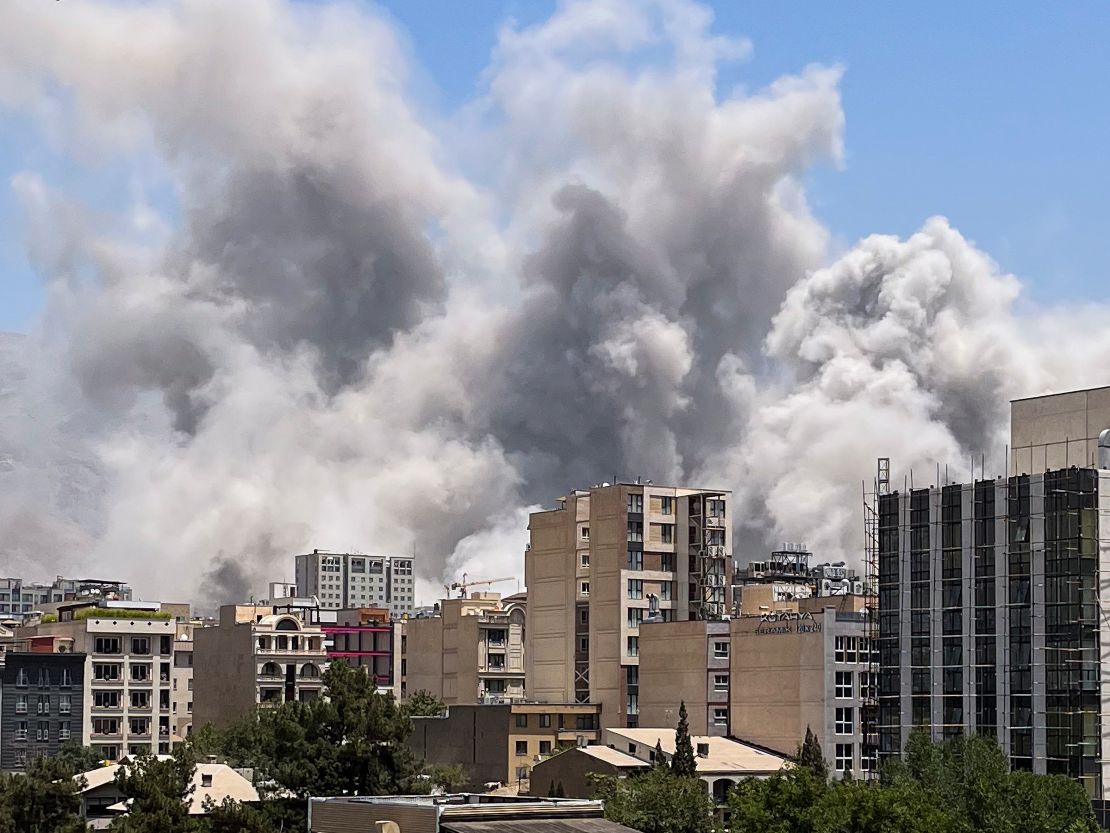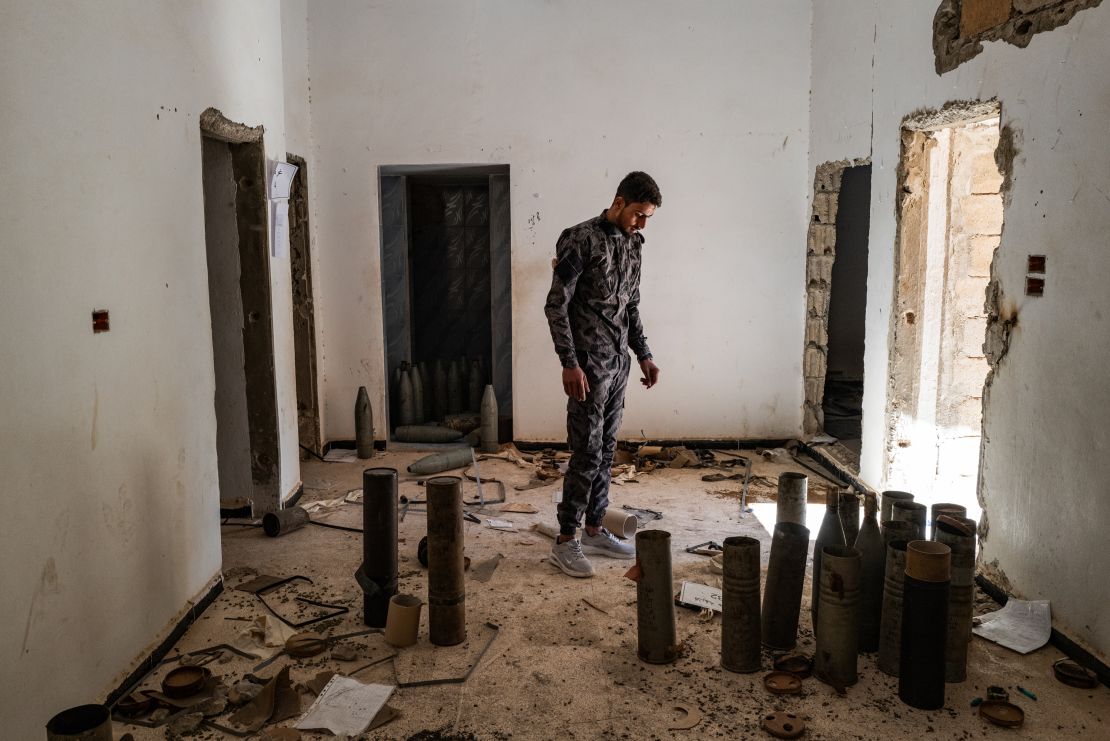CNN
—
Iran’s armed proxies are ramping up pressure on key points in the Middle East as Tehran attempts to rebuild its regional influence, eroded by almost two years of a destructive Israeli military campaign.
Tehran’s Houthi allies in Yemen ended months of calm in the Red Sea last week with strikes on two commercial ships travelling in the critical waterway. Proxies in Iraq are suspected of disrupting oil production in the Kurdish region, and shipments of hundreds of rockets bound for Hezbollah in Lebanon have been intercepted by Syrian forces over the past months.
The increasing activity by the proxies reflects Iran’s determination to continue supporting a network of disruptive armed groups – long seen as essential to Tehran’s deterrence strategy, despite their failure to deter recent Israeli and American attacks on Iranian soil – ahead of possible talks with Washington to reach a new nuclear deal. But so far, neither the United States nor Iran appears to be willing to make major compromises.
“Iran was never going to stop resupplying their groups,” said Michael Knights, a senior fellow at The Washington Institute specializing in the military and security affairs of Iraq, Iran and the Gulf states.
“They might not be able to send this much or regularly – more stuff might get intercepted – but if you’re the (Iranian) Revolutionary Guards’ Quds Force right now, what you’re trying to show is ‘we still exist, we’re intact, nothing has changed.’”
Israel launched an unprecedented attack on Iran last month, targeting and killing key military figures, including the head of the Islamic Revolutionary Guards Corps (IRGC) Hossein Salami, critical to sustaining and expanding the Islamic Republic’s regional proxy network, and Behnam Shahriyari, who Israel says was responsible for weapons transfers to Tehran’s proxies.
But even as Iran reels from the loss of key military figures, it has persisted in arming those proxies, signaling that it still views them as a strategic asset to expand its regional leverage.

Just three days after a ceasefire was declared between Iran and Israel, a vessel carrying 750 tons of Iranian missiles and military equipment, including missiles, drone engines and radar systems, was intercepted in the Red Sea by forces loyal to Yemen’s exiled government, the United States Central Command said Wednesday. It added that the “massive Iranian weapons shipment” was destined for the Houthis.
The interception, according to the US military, marked the “largest weapons seizure” in the history of the Yemeni National Resistance Forces (NRF) – a pro-US, anti-Houthi group led by Tariq Saleh, the nephew of Yemen’s late leader Ali Abdullah Saleh.
The Iranian foreign ministry denied that it had sent weapons and called it a “deceitful attempt” by the US to “divert public opinion.”
The Houthis in Yemen have used Iranian weaponry to launch attacks on both Israel and commercial vessels in the Red Sea. An attack on a Greek-owned ship last week killed four crew members, injured others and left 11 people missing, the European Union naval operation Aspides told CNN. Six of those on board were captured by the Houthis, a UK-based maritime risk management company, Vanguard Tech, told CNN.

Days before that, the Houthis targeted a Liberian-flagged bulk carrier, the Magic Seas, using unmanned boats, missiles and drones.
The attacks, which sank the two vessels, appear to show an escalation of force and were the first recorded this year after months of calm in the busy waterway.
Over the past few months, suspected Iran-backed groups have also increased their attacks on Western allies in Iraq, destabilizing oil output in the Kurdish-controlled region of the country.
Five oil fields, including two operated by US companies, were hit after a “spate of drone attacks” by “criminal militias,” Aziz Ahmad, an official in the Kurdish Regional Government (KRG), said on Wednesday.
“The KRG welcomed U.S. investment and companies. Now, those same investors are being pushed out in a calculated campaign to economically strangle us,” Ahmad said on X.

The spokesperson for the KRG Peshawa Hawramani told CNN that the drone attacks are “intended to destroy the energy infrastructure” and to ensure that the KRG “has no capacity to produce oil and gas, so it cannot use this as leverage in agreements or rely on it as a source of income.”
The KRG’s interior ministry blamed attacks earlier this month on the Popular Mobilization Units, a predominantly Shiite Iranian-backed paramilitary force based in Iraq.
“These attacks are being carried out… with the aim of creating chaos,” the interior ministry said after a bomb-laden drone landed near the KRG capital Erbil earlier this month.
Iran’s regional influence has been substantially weakened since Hamas’ October 7, 2023 attack on Israel and Israel’s subsequent campaign to root out Tehran’s proxies from the region.
Iran’s key ally in Lebanon, Hezbollah, sought to support Hamas after October 7 by firing cross-border rockets and opening a second front against Israel. Since then, the group has been severely weakened, losing its once-dominant influence in Lebanon and facing growing internal and Western demands to disarm, as its fighters are targeted by near-daily Israeli strikes.
The group’s revered leader Hassan Nasrallah was killed in an Israeli strike last year and its key supply route in Syria was lost after the fall in December of Syrian President Bashar al-Assad, a crucial ally to Tehran.

“Hezbollah are losing sway, they’ve lost credibility with their own base. Of course, the Iranians are trying to reinforce some of their proxies to reinforce their negotiating hand, but they’re not making much headway,” a regional official told CNN.
Still, another regional source told CNN that Hezbollah could begin “regrouping itself over the coming weeks” fearing an escalation from Israel. Hezbollah feels it is in an “existential situation” because of the loss of Syria and the growing internal Lebanese pressure, the source added.
Iran’s attempts to rearm Hezbollah have continued over the past year. The new Syrian government, which staunchly opposes Iran, has seized several shipments of weapons bound for Lebanon, according to the Syrian Interior Ministry.
Last month, the Syrian interior ministry said in a statement that it had foiled an attempt to smuggle anti-tank Kornet missiles, the same type used by Hezbollah to target Israeli tanks in southern Lebanon. The Syrian police said the weapons were hidden in a truck carrying vegetables in the Homs countryside, which borders Lebanon.
The first regional source who spoke to CNN questioned Tehran’s purpose in arming proxy groups who had proven ineffective in protecting Iran, or achieving their stated mission of “liberating Jerusalem.”
“Why are Hezbollah still arming? What have their arms given them? It has not given them protection, it has not brought them an inch closer to Jerusalem? What are these arms doing except causing misery to a civilian population?” the source said.

Iran’s rearming of groups across the Middle East comes as US President Donald Trump signals his waning interest in negotiations with Tehran.
“They want to negotiate badly. We’re in no rush… we bombed the hell out of their various places, if they want to negotiate, we are here,” Trump said Wednesday.
Ali Larijani, a senior adviser to Iran’s Supreme Leader Ali Khamenei, dismissed the idea that talks were imminent and downplayed their importance.
“Right now is not the time for talks. Negotiations are a tactic… we wait and see if the Supreme Leader finds it useful or not,” Larijani said in a televised statement on Friday.
A sixth round of negotiations was scheduled June 15, but Israel’s surprise attack the day prior disrupted the plans.
Experts say rebuilding regional armed groups and showcasing their disruptive capabilities could serve as leverage for Iran, as it looks to negotiate from a position of strength despite its recent losses.
“It will strengthen their hand, in theory, to show that they are not just rolling over and subservient… they want to appear defiant but not enough that the US hits them,” Knights said.
